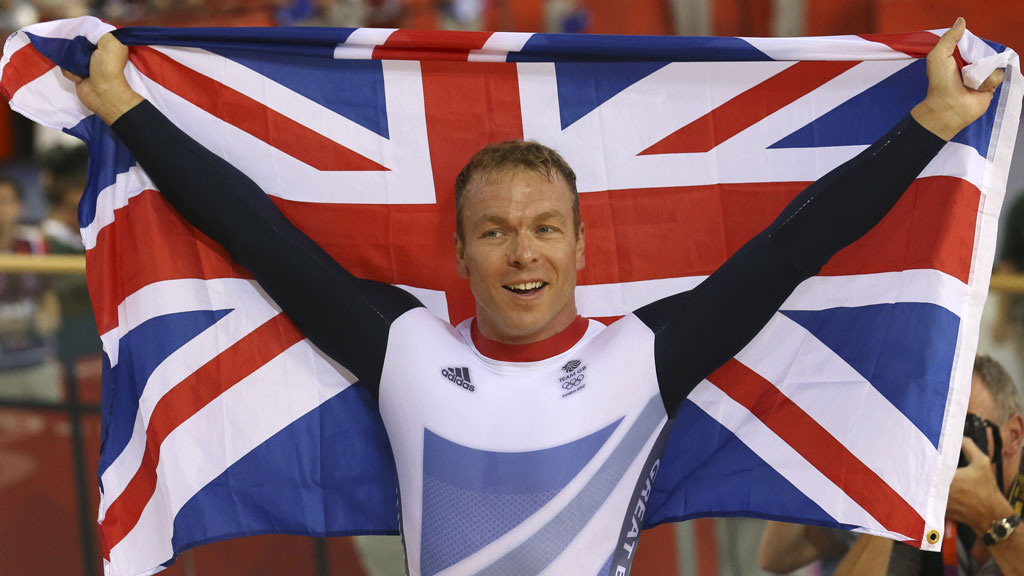Andy Murray: do sport and politics mix?
With Alex Salmond saluting Andy Murray as a “Scottish sporting legend”, Channel 4 News looks at the relationship between athletic success and the independence drive north of the border.
In 2014, Scots will be asked in a referendum if they want to break away from the UK and become an independent country.
Supporters of the union argue that England and Scotland are stronger together than apart, and are now pointing to what was achieved by Team GB in the Olympics to illustrate their point.
Andy Murray, a proud Scot from Dunblane, enjoyed playing tennis for Team GB at the Olympics and draped himself in the union flag after winning a gold medal at Wimbledon.
This may have dismayed Scotland’s First Minister Alex Salmond, leader of the nationalist SNP, who pointedly drew attention to Murray’s Scottishness after his grand slam victory in New York (David Cameron referred to his Britishness).
But if Murray had chosen a saltire instead of the union flag, his gesture could have been seen as provocative – and an ill-advised foray into pre-referendum politics – following the comments he made as a 19-year-old in 2006.
‘Anyone but England’
Asked who he would be supporting in the World Cup, where Scotland were not represented, he replied: “Anyone who England are playing.” This was seen by some as an anti-English barb, but in his defence Murray was joking.
He was not having a pop at the English, so much as the England football team, and said later: “I don’t mind whether England win or lose.”
Politicians of all hues have been using the Olympics for their own ends. The question is how long this lasts. Is it just today’s infatuation, or will it continue to 2014?
They can capitalise on sport, but they look silly if they try to prolong the moment. Professor Murray Pittock, Glasgow University
Former prime minister Gordon Brown, an opponent of independence, said at the Edinburgh Book Festival in August that the success of Team GB’s cycling team, led by the Scot Sir Chris Hoy, was a testament to the “pooling of resources”.
Sir Chris, the most successful British Olympian of all time in terms of gold medals, also wrapped a union flag around his shoulders at London 2012 after another winning performance.
‘Scottish and British’
He said during the Games: “I’m Scottish and I’m British. I think you can be both. They’re not mutually exclusive, but it’s frustrating because as an athlete all you want to do is race and be the best you can and not get dragged into politics.”
A riposte to Mr Salmond, who had taken to referring to Scotland’s athletes as “Scolympians” before the Games? Who knows, but it has been reported that Sir Chris will be asked to join the anti-independence Better Together campaign.
Professor Murray Pittock, head of the College of Arts at Glasgow University, told Channel 4 News: “Athletes have their own political views. The indications are that Chris Hoy is not a supporter of independence.”

London Mayor Boris Johnson, at his most voluble on Monday at the parade to celebrate the achievements of Team GB and ParalympicsGB, said last month: “The Scots are never going to vote for independence… these Games have done for Salmond… vote Hoy.”
At the parade, David Cameron spoke about the Games and England’s World Cup final victory in the same breath – a strange analogy given that 1966 was England’s moment, while 2012 represents the combined efforts of England, Scotland, Wales and Northern Ireland.
How long will this all last? During the Games, opinion polls showed declining support for Scottish independence. But a poll published in the Sunday Times on 12 August, specifically mentioning the Olympics, produced something just as interesting.
In the Panelbase survey, 12 per cent of respondents said the success of the Olympics had made them keener on independence, while 8 per cent said they were less enthusiastic as a result.
Professor Pittock said the Games were “politically difficult” for the SNP because Mr Salmond “wants to be associated with sporting success, but does not want to condone the union”.
‘Political ends’
Using Andy Murray’s grand slam victory was equally risky. “I think he will probably not try to do much with it. The SNP want the referendum campaign started on its merits: Tory austerity.
“He will probably not try to use it for political ends because it will bring people’s minds back to the Olympics. It’s in the interests of unionist politicians to keep the Olympics going for longer, but not for nationalists.”
But Professor Pittock said politicians from all sides, including David Cameron, should be cautious. “They can capitalise on sport, but they look silly if they try to prolong the moment.
“I don’t think he (Mr Cameron) can go back to the Olympics by 2014 unless there are indications it has changed people’s minds for good, but it doesn’t look as though it has.
“The Olympics is one of the examples of when you work together very well. But it won’t have the weight it has now.”
Go it alone
Mr Salmond has said he wants the Scots to go it alone at the 2016 Olympics in Rio, following a yes vote in the independence referendum.
He could point to the fact that Scottish athletes won 13 of Team GB’s 65 medals, seven of them gold – no mean feat given Scotland’s small population.
Or he could take account of the FactCheck blog’s analysis, which found that most of these medals were awarded for team efforts that included non-Scots.
Only three of the medals (for Andy Murray, Sir Chris Hoy and the swimmer Michael Jamieson) went to Scots competing in individual events.
Let battle commence – but let us avoid another Culloden.